Upcoming Event: Mar 24, 2026
Join us at Oracle AI World Tour London 2026
1 min read
Business Intelligence remains one of the hottest priorities for most organisations – correspondingly we were expecting to see some big innovation in this area at OpenWorld 2013, and we were not disappointed.
Reflecting the importance of Business Intelligence to Oracle’s customers (and hence Oracle and its partners) Business Intelligence sessions occupied many of the key timeslots at the start of the week. We kicked off with the Business Intelligence Product Technology and Roadmap session, led by Paul Rodwick, VP of Product Management, before moving on to Cloud Analytics, the BI Applications Roadmap (led by Florian Schouten) and BI Mobile Applications sessions.
This post focusses on the current – and near future – state of Oracle’s BI Applications offering; stay tuned for future posts on Mobile BI and Cloud Analytics.
The last year has seen the addition of a new Student Analytics application to the OBIA stable. A dedicated session at OpenWorld focussed in on this topic, outlining how UK Universities were using this application to analyse student behaviour and predict drop-outs, thereby providing a mechanism to identify revenue risk. Over the next 12 months, Oracle is building upon this initial Student Analytics application release, so expect to see further enhancements here.
With their financial challenges, this is an area that is going to become increasingly relevant for educational institutions, and being a consultancy partner for some customers in the Education sector, we’re looking forward to seeing how much value they perceive the current application offering, and its roadmap items, to provide.
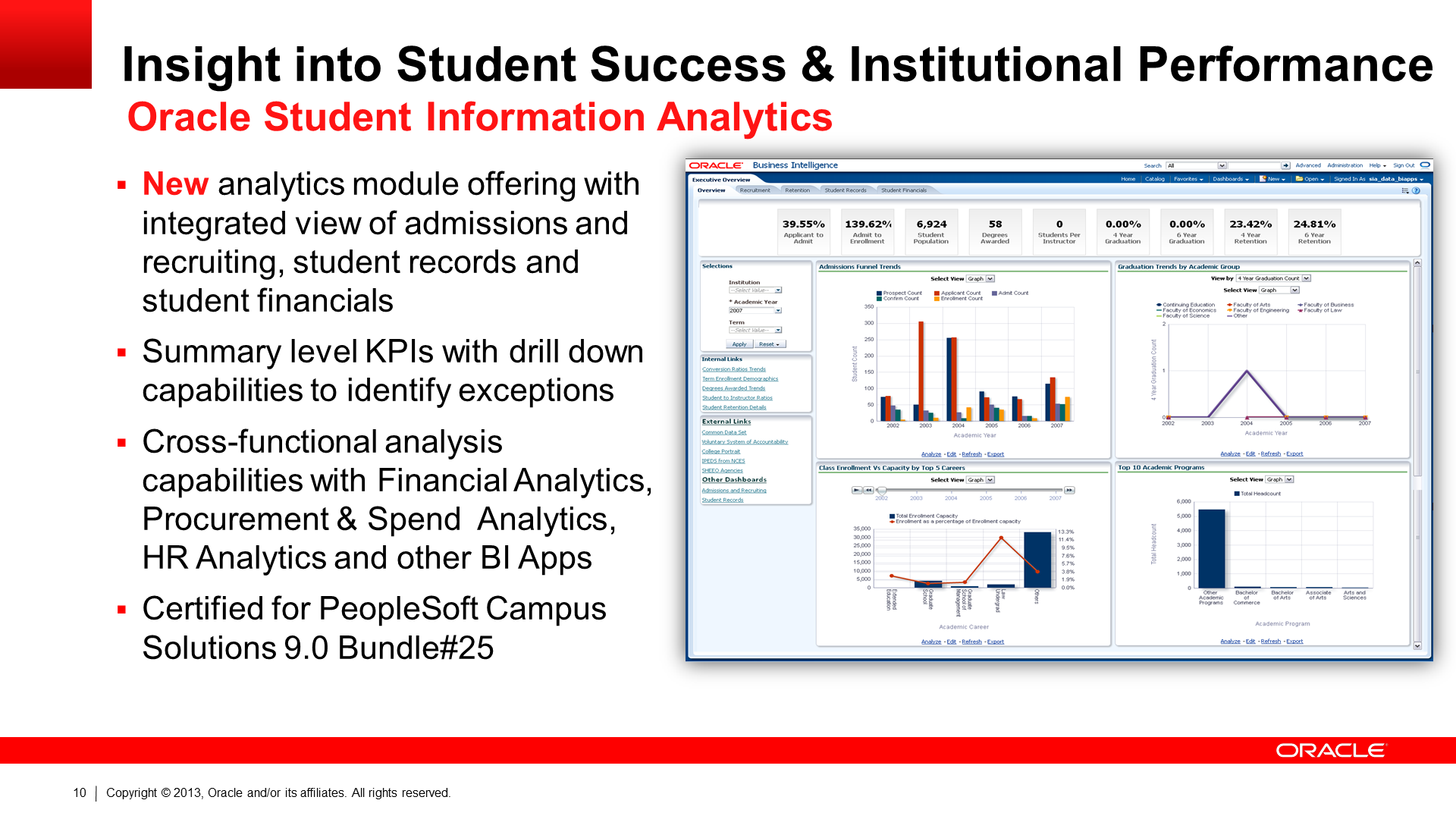 The new Student Analytics Application in OBIA 11.1.1.7.1
The new Student Analytics Application in OBIA 11.1.1.7.1
As many will be aware, the 11.1.1.7.1 BI Applications release has Oracle Data Integrator (ODI) baked in, in place of the Informatica ETL component that has historically been bundled with BI Apps. Furthermore, the Datawarehouse Administration Console (DAC) has been replaced by a combination of Oracle Data Integrator “agents” as well as two web-based controls: Functional Setup Manager and BI Apps Configuration Manager. From a purely functional perspective, this is a positive development, as the new controls bring more flexibility and built-in capabilities than the DAC currently offers.
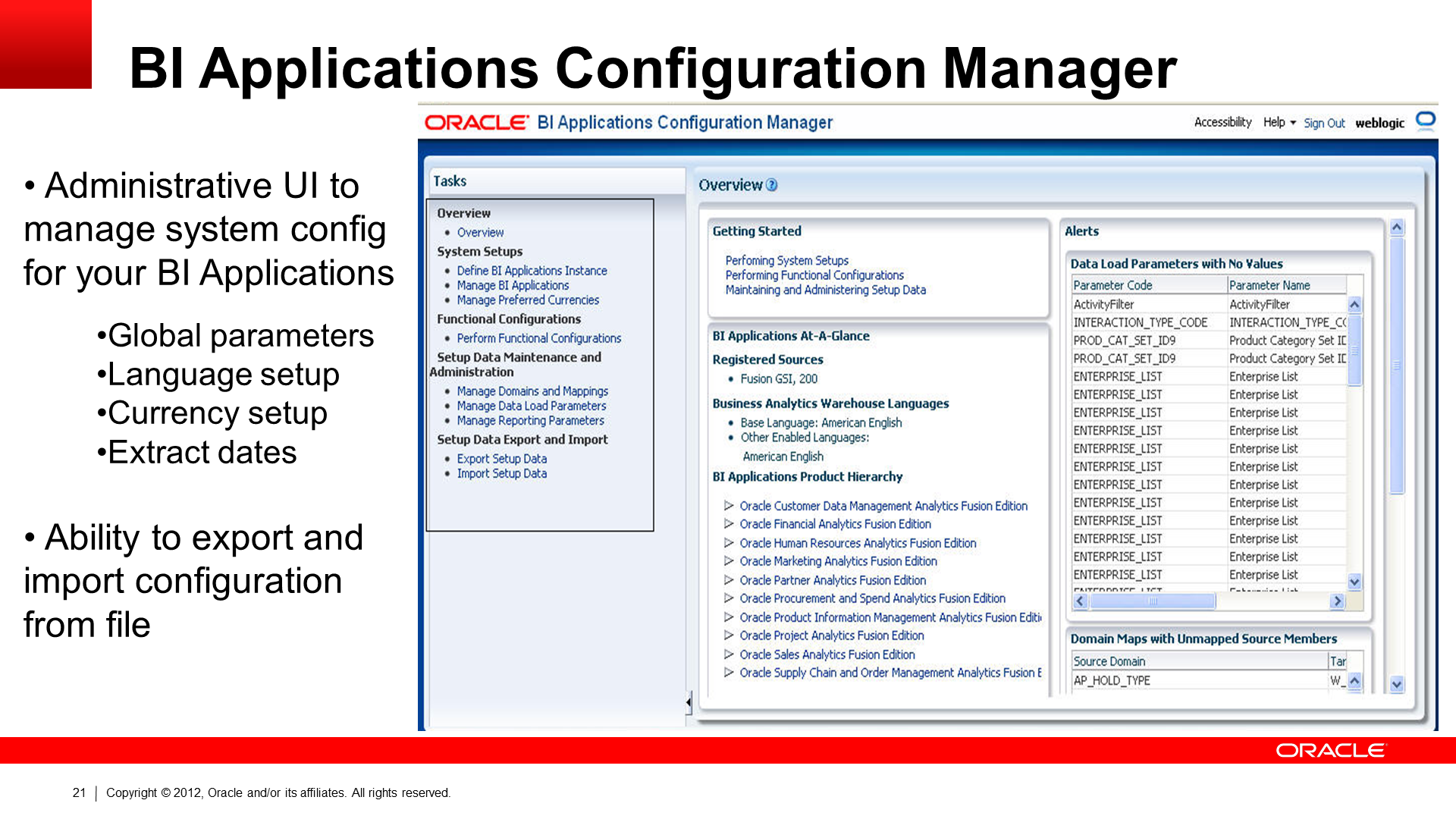 Oracle BI Applications "Configuration Manager"
Oracle BI Applications "Configuration Manager"
On a more general note, the Functional Setup Manager component is also a key component in Oracle’s wider “Fusion Applications” stack – for example, it is used to guide setup of Oracle Sales Cloud as well as other offerings based on the Oracle Fusion architecture – so its presence in BI Apps brings a familiar user interface to those who have worked with Oracle’s wider product offerings.
The replacement of Informatica and the DAC signals Oracle’s future direction for BI Apps, and Oracle pointed towards significant efficiencies through using ODI.
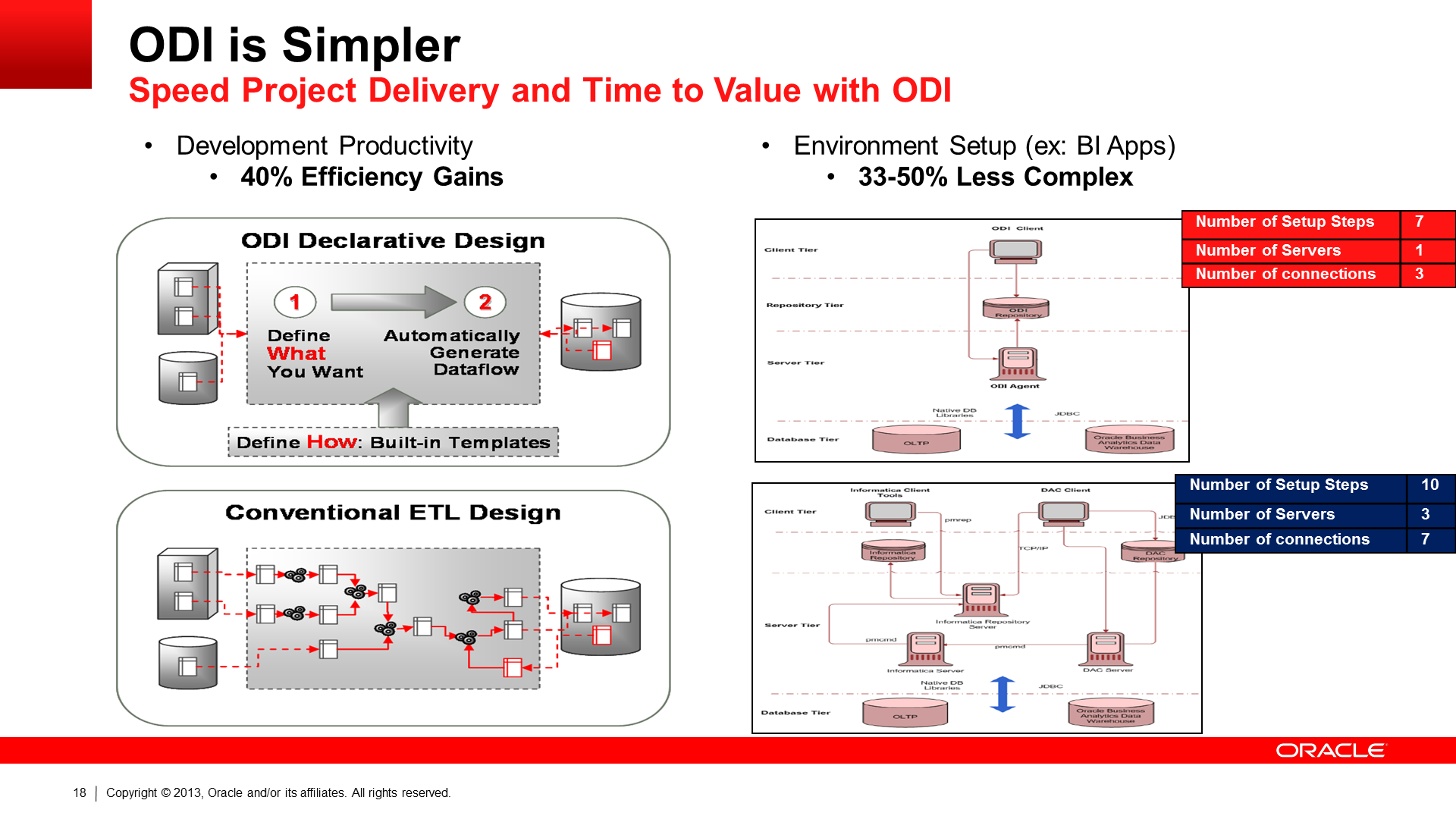 Oracle's Claimed Efficiency Gains from Using ODI
Oracle's Claimed Efficiency Gains from Using ODI
However, Oracle were also quick to clarify that support for Informatica is scheduled to arrive in 2014 – an important statement since there are literally thousands of customers whose ETL routines are written for Informatica, and whose BI teams are familiar with supporting Informatica. It is clear that Oracle is intending to support Informatica for a long time to come, and the message was that customers are free to move to ODI as and when it suits them.
However, even though Informatica will be supported, support teams will still need to get up to speed on the Fusion Middleware Control if upgrading to BI Apps 11.1.1.7.1 or later as the DAC will not be used going forward.
Also included within OBIA 11.1.1.7.1 (as an optional extra) is Oracle GoldenGate. The Oracle GoldenGate technology has been around for a while and has been seen as a must for virtually any Oracle database customers who want disaster recovery environments, allowing as it does data replication from one database instance into another in near real-time – and with minimal load upon the source database (it achieves this by continually reading the Oracle database log files to identify data changes, and subsequently replicating those across to the secondary database).
However, within the context of BI Apps, GoldenGate – through its continuous trickle feed from the source systems – enables two key things:
We expect this will offer significant value for many customers and predict this driving many upgrades to BI Apps 11.1.1.7.x.
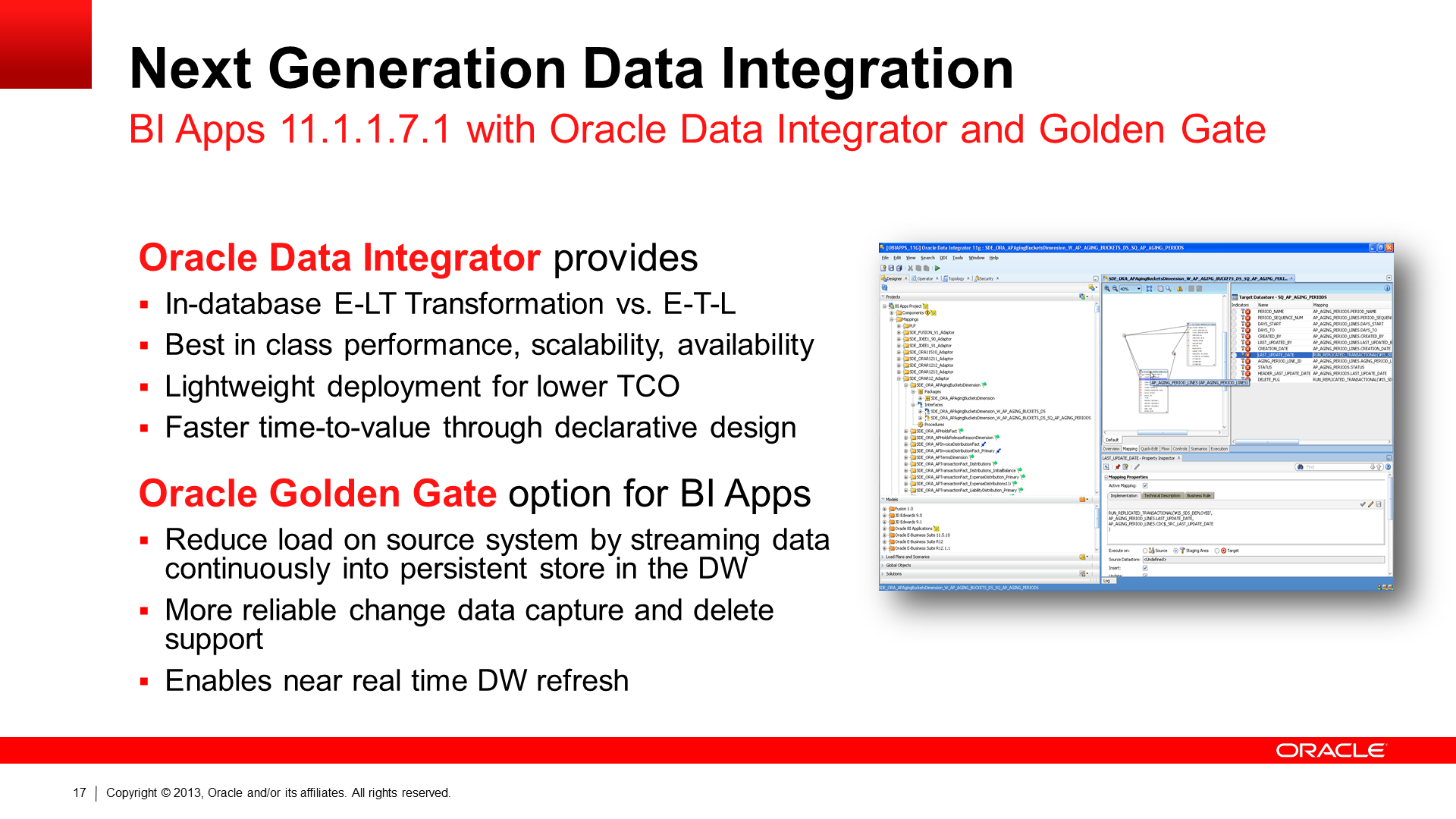 The Oracle GoldenGate 'option' for Oracle BI Applications
The Oracle GoldenGate 'option' for Oracle BI Applications
Another key value-add from the GoldenGate inclusion is that it will enable customers to trickle-feed data from their Cloud applications down into their on-premise Data Warehouse, thereby allowing analysis across all of their Enterprise Data regardless of whether the original source systems are on-premise or in the Cloud.
To support this further, in the coming twelve months Oracle are releasing “Cloud Connectors” for BI Apps, which will enable data to be easily pulled from Oracle's Sales Cloud, HCM Cloud, ERP Cloud and Taleo offerings. Beyond that, Cloud Connectors for Oracle Marketing Cloud and Oracle Service Cloud (RightNow CX Cloud Service) are also planned.
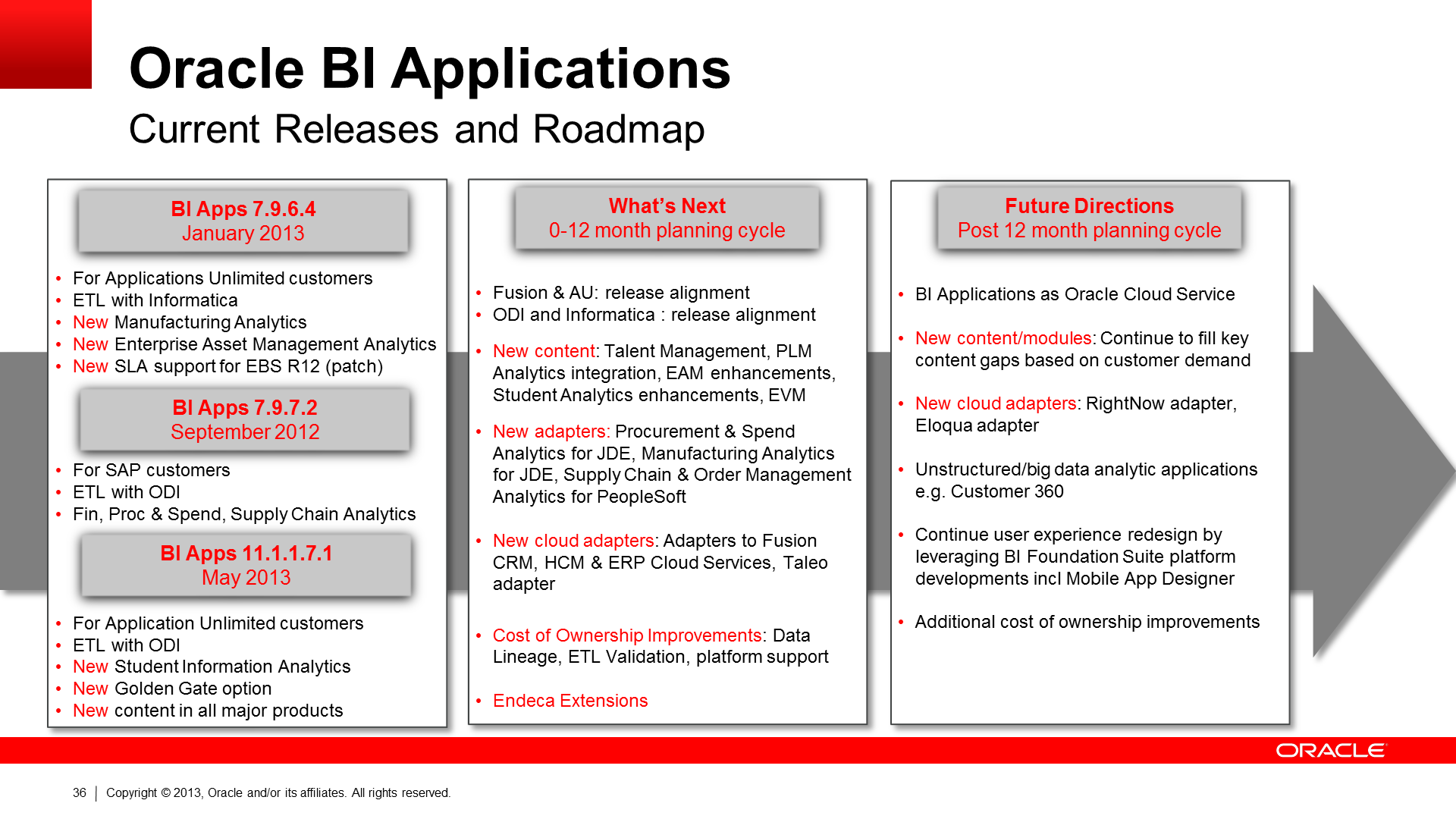 Oracle Business Intelligence Applications - Current Release and Roadmap as at OpenWorld 2013 (subject to Oracle's Safe Harbor statement)
Oracle Business Intelligence Applications - Current Release and Roadmap as at OpenWorld 2013 (subject to Oracle's Safe Harbor statement)
Through leveraging components that had previously sat outside the OBIA technology stack, Oracle have dramatically enhanced the Oracle Business Intelligence Applications offering.
The current OBIA release, and the near-term roadmap, enables customers to:
We felt that these important enhancements really served to underline why Oracle maintains a position in Gartner's Magic Quadrant for BI, and will give customers confidence in their choice of using Oracle technology to support their organisation's Business Intelligence strategy.
If you would like to hear more about the topics above, please give us a call on +44 203 283 4315 or contact us here. 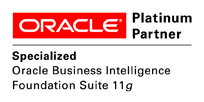
1 min read
Strategy Workshop at Churchill War Rooms
1 min read
1 min read